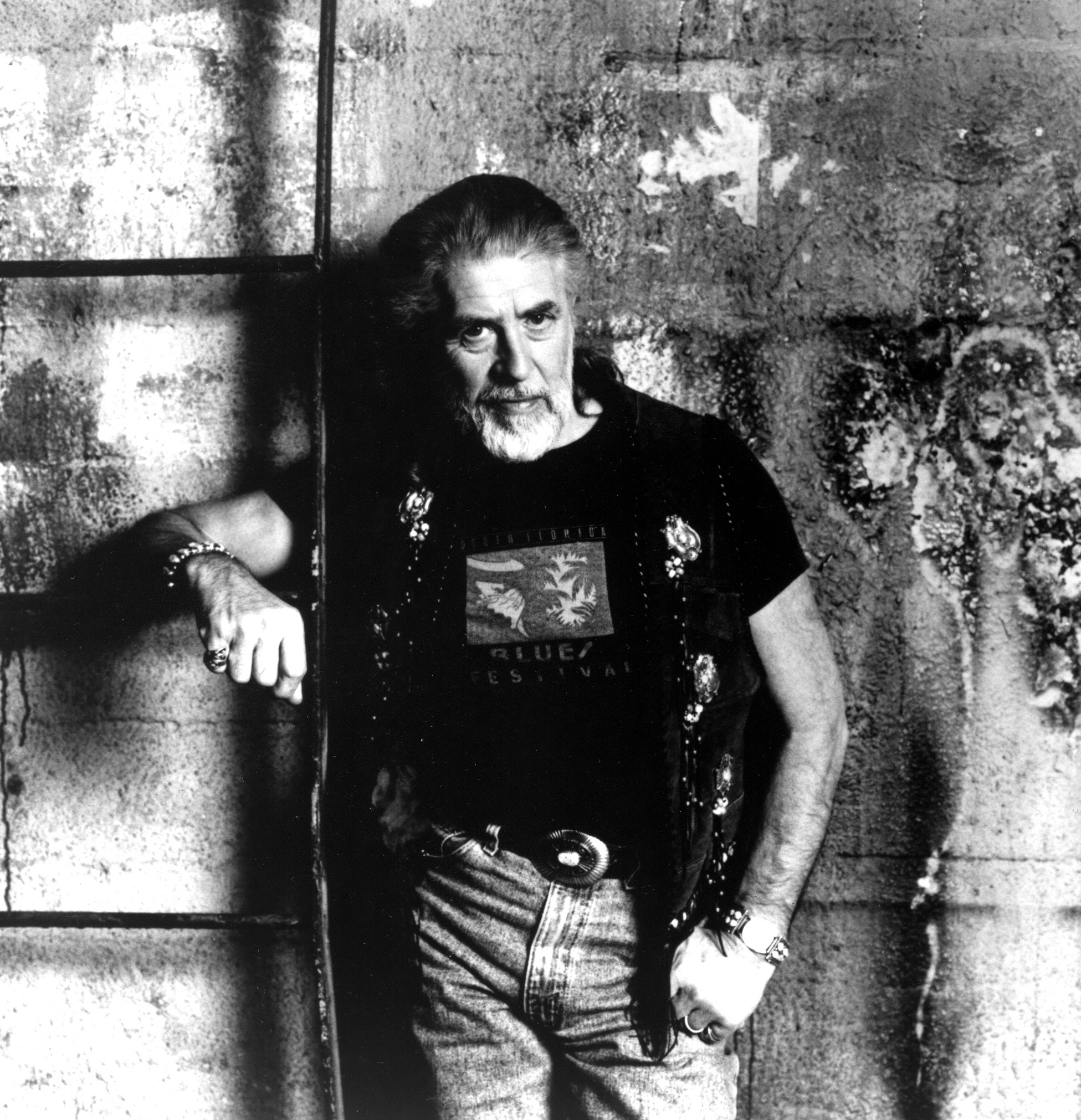John Mayall, recently inducted into the Rock and Roll Hall of Fame, and the pioneering force behind the Bluesbreakers, a band that served as a crucial incubator for British blues and rock legends like Eric Clapton and Mick Taylor, has passed away at the age of 90. He died peacefully at his home in California on Monday, July 22, 2024, due to health issues, as confirmed by his family in a social media statement.
The Legacy of a Blues Pioneer
Hailed as “The Godfather of British Blues,” John Mayall’s profound love for American blues and jazz, combined with his remarkable talent for recognizing and nurturing young musicians, cemented his place as a pivotal figure in music history. In a 2014 interview with The Guardian, Mayall eloquently captured the essence of the blues, stating, “[It has] always been about that raw honesty with which [it expresses] our experiences in life… Something that is connected to us, common to our experiences.” His dedication to the genre was unwavering, as he confessed, “To be honest, I don’t think anyone really knows exactly what it is. I just can’t stop playing it.”
Mayall’s most enduring contribution to music was undoubtedly the formation of the Bluesbreakers in 1963. Throughout the 1960s, the band became a revolving door of exceptional talent, a veritable who’s-who of British blues and rock royalty. From Eric Clapton and Peter Green to Jack Bruce, John McVie, Mick Fleetwood, Aynsley Dunbar, and Mick Taylor, who would later join the Rolling Stones, the Bluesbreakers roster reads like a hall of fame in itself. The band achieved significant commercial success in the UK during the Swinging Sixties, consistently landing in the Top 10 LP charts between 1966 and 1970. Their 1966 album, Blues Breakers with Eric Clapton (often referred to as the “Beano Album” due to Clapton reading the Beano comic on the cover), introduced the world to the phenomenal guitar skills of a young Eric Clapton, who had just departed from The Yardbirds. Clapton’s groundbreaking playing on this album sparked the famous “Clapton is God” graffiti, solidifying his legendary status.
 John Mayall in the 1980s Everett Collection
John Mayall in the 1980s Everett Collection
John Mayall performing in the 1980s, showcasing his enduring presence in the blues music scene.
The Ever-Evolving Bluesbreakers Lineup
Eric Clapton’s departure in 1966 marked a significant turning point, but the Bluesbreakers sound evolved rather than diminished. He was succeeded by Peter Green, who himself left in 1967 to form the original Fleetwood Mac with Bluesbreakers drummer Mick Fleetwood and bassist John McVie. Green’s tenure, though shorter, was equally impactful, contributing his own distinctive guitar style to the band’s evolving sound. Mick Taylor stepped in after Green, adding yet another layer of guitar virtuosity before joining the Rolling Stones in 1969 following Brian Jones’s death. This constant flux of talent was a testament to Mayall’s ability to identify and attract exceptional musicians, and the Bluesbreakers consistently delivered high-caliber blues music despite these changes.
While the Bluesbreakers were a sensation in the UK, their success in the United States was more intermittent but still noteworthy. They charted nearly 20 albums in the US between 1968 and 1975. Among their most successful American releases was The Turning Point (1969), a live album that achieved gold status and reached No. 32 on the charts. USA Union (1970), featuring former Canned Heat members Larry Taylor and Harvey Mandel, marked their highest US chart position, peaking at No. 22. These albums demonstrated the Bluesbreakers’ appeal to American audiences and their continued relevance in the blues rock scene.
From Post-War Britain to Global Blues Icon
Born on November 29, 1933, in Macclesfield, Cheshire, John Mayall’s journey to becoming a blues icon began in post-war Britain. After serving in the British military, he moved to London in 1963 at the encouragement of Alexis Korner, a fellow pioneer of the British blues scene, to pursue his musical aspirations. He quickly formed the Bluesbreakers, initially with John McVie and Peter Ward, and began performing in London clubs. The early years of the band were characterized by frequent personnel changes, a reflection of the dynamic and evolving nature of the burgeoning British blues movement.
Jack Bruce, another future Cream member, had a stint with the Bluesbreakers in 1965 before joining Manfred Mann and later forming the supergroup Cream with Eric Clapton and Ginger Baker. Aynsley Dunbar, who played drums for the Bluesbreakers from 1966 to 1967 and contributed to subsequent albums, went on to work with music giants such as Frank Zappa, David Bowie, and later Journey and Jefferson Starship, further illustrating the far-reaching influence of the Bluesbreakers alumni.
Later Career and Accolades
Relocating to Los Angeles in 1969, Mayall continued his prolific career, consistently leading bands and releasing albums. His discography boasts dozens of records, earning him two Grammy nominations nearly three decades apart. Wake Up Call was nominated for Best Contemporary Blues Album in 1993, and his final album, The Sun Is Shining Down, received a nomination for Best Traditional Blues Album in 2022. Throughout his extensive career, Mayall collaborated with a diverse array of renowned musicians, including Joe Walsh, Steven Van Zandt, Alex Lifeson, Billy Gibbons, Otis Rush, Billy Preston, Marcus King, and Walter Trout, showcasing his versatility and enduring appeal across generations of musicians.
Mayall’s contributions to music were formally recognized with several prestigious honors. He was appointed an Officer of the Most Excellent Order of the British Empire (OBE) by Queen Elizabeth II in 2005, inducted into the Blues Hall of Fame in 2016, and finally elected to the Rock and Roll Hall of Fame as a “Musical Influence” in 2024, alongside Alexis Korner and Big Mama Thornton. Even in his later years, John Mayall remained dedicated to his craft, continuing to record and tour until approximately two years before his passing.
John Mayall is survived by his children Gaz, Jason, Red, Ben, Zak, and Samson, along with seven grandchildren and seven great-grandchildren. His passing marks the end of an era for British blues, but his legacy as the “Godfather of British Blues” and the guiding force behind the Bluesbreakers will continue to inspire and influence musicians and music lovers for generations to come.

